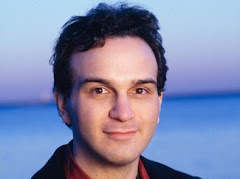Carl St. Clair made his debut at the DFP Hall with the MPO in an attractive programme of Austro-Germanic repertoire comprising Haydn's Symphony No 88 in G major and Richard Strauss' epic symphonic poem Ein Heldenleben. Music director for the Pacific Symphony Orchestra for the past 27 years, St. Clair was the general music director for the Komische Oper in Berlin from 2008 to 2010, succeeding the current Berlin Philharmonic Orchestra chief conductor designate, Kirill Petrenko.
Time-wise, the programme was a bit succinct with an estimated time of 23 minutes for the Haydn and 40 minutes for the Richard Strauss works. However with St. Clair's wide German conducting experience, the musical quality of his interpretation more than made up for the concise length.
Adopting fairly lively tempi overall for the Haydn, the opening movement's Adagio and Allegro was played in an animated manner by the MPO players who performed mainly standing with the exception of the cellists, hornists, bassoonists and timpanist.
Apart from a poorly co-ordinated unison solo oboe and cello theme that opened the second movement, the sedate Largo flowed nicely under St. Clair's direction. St. Clair emphasised punchy entrances in the Minuet, and brought to the fore the open-fifth drone in the Ländler, highlighting the earthy and jovial quality of this movement.
St. Clair took the finale at a fair lick but always staying on the side of good taste. St. Clair’s Haydn smiled amiably. Speeds were fast but unforced, with the gentle humour in the witty finale. Woodwinds were blended perfectly with a clear and homogenised sound and the strings sculpted their phrases with care.
My first concert experience of Richard Strauss' Ein Heldenleben was in April 1985 at London's Royal Festival Hall when Herbert von Karajan brought his Berlin Philharmonic Orchestra and preceded it with Beethoven's Fourth Symphony. The English Testament label (SBT1430) had released this magnificent performance which was recorded for posterity by the BBC.
Carl St. Clair's interpretation in Kuala Lumpur with the augmented MPO (with a number of considerable substitute players) was very commendable. From the first upward-leaping arpeggio of the opening section "(Der Held)" (The Hero), the whole MPO string section and the horns lacked just a bit of tonal heft. However, St. Clair and the MPO recovered swiftly to paint a vivid and biting depiction of Strauss' critics in "Des Helden Widersacher" (The Hero's Adversaries).
Peter Danis’ solo in the "Des Helden Gefährtin" (The Hero's Companion) was initially quite sedate and less extrovert than usual, but he characterised the ‘hero’s companion’ more capriciously as the movement wore on and this portrait was very much in line with Strauss' comment on his wife being "very complex, a trifle perverse, a trifle coquettish, never the same and changing from minute to minute".
St. Clair and the MPO rendered the romantic love scene with sumptuous tone before the three off-stage trumpets heralded the "Des Helden Walstatt" (The Hero at Battle) battle scene, which was also well-played but not quite matching the tonal splendour and opulence of the Berlin Philharmonic.
The final two sections of "Des Helden Friedenswerke" (The Hero's Works of Peace) where Strauss quotes from his various works like Guntram, Don Quixote, Don Juan, Macbeth, Death and Transfiguration, Also Sprach Zarathustra and Till Eulenspiegel among others and "Des Helden Weltflucht und Vollendung" (The Hero's Retirement from this World and Completion) were moving, especially leader Peter Danis' final meltingly played violin solo which blended affectingly with Grzegorz Curyla's lovely horn solo.
St. Clair's Austro-German debut with the MPO was an impressive showing indeed, working musical miracles with an augmented MPO, laden with substitute players in such a complex work as Ein Heldenleben and conducted very convincingly from memory. There were very rare instances of bad ensemble and poor intonation. Instead, balances and tempi were immaculate, execution was generally exemplary with an affecting touch and thorough musical understanding of this supreme work of the Richard Strauss oeuvre.
Subscribe to:
Post Comments (Atom)


















































No comments:
Post a Comment